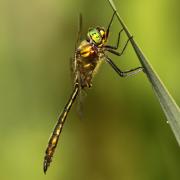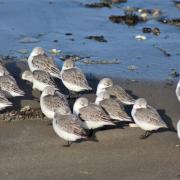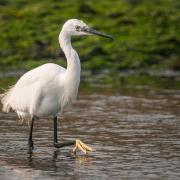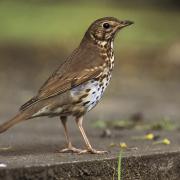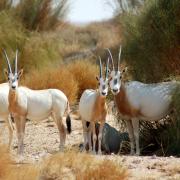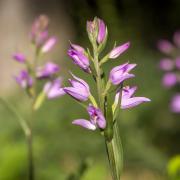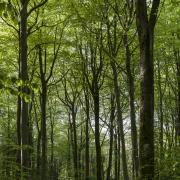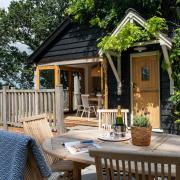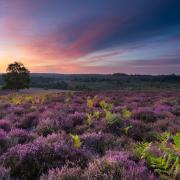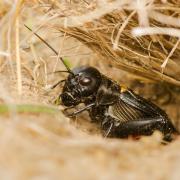If you’re a very early riser, an annual spring treat is in store: the wonderful cacophony of birdsong that signals the start of an avian mating game. Tiffany Francis explains how and where to enjoy it
While the warm days of spring offer up a thousand joys each year, the dawn chorus is one of the most powerful and captivating. So often missed by heavy sleepers and late risers alike, from four o’clock onwards the gardens, hedgerows and woodlands of Britain erupt into a wild cacophony of birdsong, as every male bird attempts to seduce a partner with the greatest opera of their little lives. They time their breeding season to coincide with the warmest part of the year, when food is plentiful and any eggs laid by the females will have a better chance of survival.
The blackbird begins the hullabaloo with deep and fruity notes, followed closely by the bold melodies of wrens and robins. Next comes the chaffinch, greenfinch, bullfinch, song thrush, starling, dunnock, goldfinch and sparrow, each adding their voice to the beautiful chaos until mates are chosen, the sun rises and business continues as usual – all before our first guzzle of coffee.
It’s not just the ‘early bird’ attitude that encourages our birds to sing so promptly; with less background noise from the human world, the air is of a different quality and can carry birdsong up to twenty times further. The males will sing both to defend their territory and find a valentine, but their efforts are not to be taken lightly; the act of singing is hard work for our birds and draws heavily on precious energy reserves. While we enjoy the felicity of birdsong, the females are eager to find a mate with a strong voice, as he is more likely to have the stamina to raise chicks and protect his territory.
The breeding season for most garden birds can last until late July. A typical blackbird’s nest will hold a clutch of 3-5 eggs, and the chicks will hatch a couple of weeks later, after which they are fed on a hearty diet of earthworms and caterpillars. At two weeks old, they are ready to fledge the nest, and it is at this point that gardeners may find baby birds in the grass who appear to have ‘fallen’. As long as there are no immediate predators around, like cats or cars, it is always best to leave baby birds where you find them; they are still finding their feet and may simply be building up confidence and strength to try flying again.
Now is the perfect time to get outdoors and experience the dawn chorus for yourself. Wake up early, fill a flask with something hot, and enjoy one of nature’s spring spectacles. Hampshire’s landscape is 19 per cent woodland, so there are plenty of great spots to get close to wildlife. What finer way to start your morning than to experience the magic of birdsong with family and friends?
Listen to the Dawn Chorus
• Queen Elizabeth Country Park, Petersfield - Fourteen hundred acres of downland and woodland to explore – and part of the South Downs Way.
• Roydon Woods, Brockenhurst - A stretch of ancient woodland, ponds and heathland, perfect for escaping the daily grind.
• Yateley Common, Yateley - An SSSI rich in wildlife, with heathland, woodland and ponds to explore across 500 acres.
• Farlington Marshes, Havant - A coastal spot managed by the Wildlife Trust, perfect for listening to warblers and wading birds.
• Blashford Lakes, Ringwood - A series of lakes surrounded by willow, birch and alder woodland, attracting redpoll, siskin, brambling and bitterns.
More…
• Hampshire walk through Alice Holt Forest - Follow Steve Davison as he takes a woodland wander through Alice Holt Forest, passing some interesting sculptures and a picturesque pond




